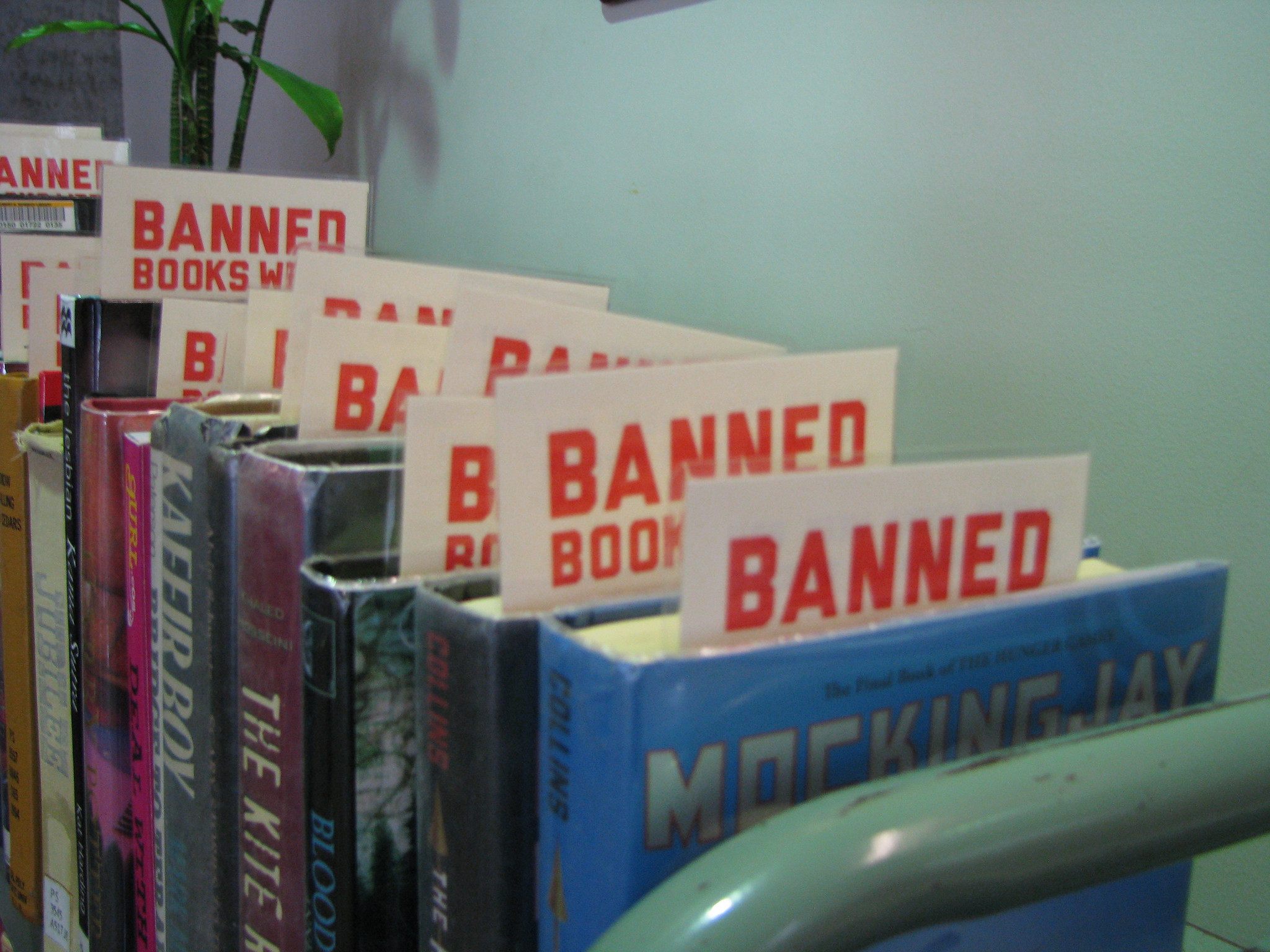What do popstar Ariana Grande, filmmaker Guillermo del Torro and 90s rock sensation Garbage have in common? They’ve all joined the fight against book bans in the USA, just ahead of Banned Books Week.
Alongside more predictable figures like Margaret Atwood, Roxane Gay and Judy Blume, they are some of more than 170 artists who signed an open letter condemning book bans and calling on Hollywood to use its influence.
“We refuse to remain silent as one creative field is subjected to oppressive bans,” the artists wrote. “As artists, we must band together, because a threat to one form of art is a threat to us all.”
They make it clear that the censorship will not end with book bans. Right now, schools and libraries are facing challenges over a particular selection of books with specific themes, which can lead to local bans. How long before Hollywood faces the wrath of those who want to shield their children from what they deem inappropriate content? How long before certain stories go untold?
PEN America recently released its latest book ban report, which makes for sobering reading. In just one year, bans have increased by a third, with a total of 3,362 bans in the 2022-23 school year. The sharp rise in book bans is largely targeted at books with LGBTQ+ content, characters or authors; books about race or racism; and books about physical abuse or with themes of grief or death. The problem is most rampant in school districts in Florida, where 40% of the bans originate, totalling 1,406 cases.
A huge percentage of the school districts where bans are taking place have a neighbour in common: a chapter of one of the advocacy groups pushing for bans, one of the most prolific of which is the conservative group Moms for Liberty. One member even set up a repository of “objectionable content” called Book Looks, according to a report by Book Riot — although the website itself claims to not be affiliated with the group.
One book under the spotlight in Book Looks is teen sex education book This Book is Gay by Juno Dawson, which made the list of the most banned books last year, compiled by the American Library Association. The website distils the book down into a few sections of text in a “slick sheet” and comes with a rating of four (out of five), which is described as not being suitable for under 18s and containing “obscene references to sexual activity” or “explicit sexual nudity.” The Handmaid’s Tale by Margaret Atwood receives the same score, as do The Kite Runner by Khaled Hosseini and Forever by Judy Blume.
I spoke to Juno Dawson for the most recent issue of Index on Censorship, of which I am the assistant editor, which landed with readers in time for Banned Books Week 2023 (1-7 October). On her most recent book tour in the US, which was for her children’s picture book You Need to Chill, she had to take a bodyguard for her own safety, due to her status as a trans woman who writes about LGBTQ+ issues. After the Hilton school district in New York State received a bomb threat in March over a selection of books including This Book is Gay, Dawson’s picture book tour did not take in schools or libraries.
“One of the key issues is people aren’t actually reading the book,” she said. “And so what happens is actually they are protesting books which have appeared on other lists. Vexatious people and groups who are trying to ban books are not going to books and reading books. They are just scouring the internet for books that they should be irate about.”
A small anti-censorship community called Save Samuels publishes book challenges sent to Samuels Public Library, saying: “We won’t allow our library to be used as a political wedge to win over religious voters at the expense of our LGBTQ+ community.”
One of the challenges it has posted is to Dawson’s picture book You Need to Chill, which reads “it is specifically crafted to normalise gender dysphoria and transitioning of children” and claims that the full text has been posted on a website (which it has, regardless of copyright law) with the aim of warning other parents.
The book challenger also demands that the book be destroyed, rather than rehomed. In another challenge directed at the picture book Mama and Mommy and Me in the Middleby Nina LaCour, the challenger is asked whether they have read the book, to which they respond: “I have not.”
Dawson discussed the damage done when particular books are targeted.
“Let’s be quite clear, when people challenge a book about race, or a book about being LGBTQ, really what they’re trying to ban is being queer, or they’re trying to restrict the lives of young Black people,” she said.
The special report in our latest issue of Index explores how religion is being weaponised by the right. This Book is Gay has faced pressure from faith groups, and Dawson was quick to point out that it’s not just one group.
Another author who knows plenty about coming under fire from the religious right is Margaret Atwood, who also spoke to Index. In light of the recent uptick in book bans, she has no doubt that people are using religion in a more emboldened way, explaining that it is hard to argue with God.
“If you can accuse your enemies of heresy and blasphemy it’s somehow more potent than accusing them of not agreeing with you politically,” she said. “You’re not just disagreeing with Mr Sunak, you’re disagreeing with God.”
The Handmaid’s Tale, arguably Atwood’s most famous book, is not anti-religion but rather explores how religion is abused. She sees the latest developments in the US as being more about power than religion. For Atwood, shutting down speech on both the left and right leads to trouble.
“People who are actually interested in free speech have to realise that they cannot just defend the speech which they approve of,” she said. “Free speech does mean free speech. There are always limits to it so you can’t say ‘sign up here to become a child molester’, but you have to defend the principle and a lot of people find it difficult to defend the right of their ideological enemies to express those opinions.”
While PEN’s report outlines worrying ways in which book banners are digging in their heels, it also offers hope. Students are pushing back. Some are walking out in protest, as in the case of Hempfield school district in Pennsylvania, and others have delivered speeches encouraging people to read banned books, such as the valedictorian in Sioux City, Iowa, who then handed a copy of This Book is Gay to the school’s superintendent.
On top of the Hollywood letter in support of the freedom to read, September offered up one more positive move — California’s law banning book bans. Governor Gavin Newson signed the bill into law, which will stop schools from banning books on the basis that they contain “inclusive and diverse perspectives”. The law comes into effect immediately.
It is clear that actions like this are needed now more than ever, and for public figures, legislators and activists to continue fighting back against censorship. A collective action on 7 October, Let Freedom Read Day, where everyone is invited to take one action against book censorship, is a good start. Left unchecked, skyrocketing book bans could soar even higher.
A version of this article was originally published in Byline Times






